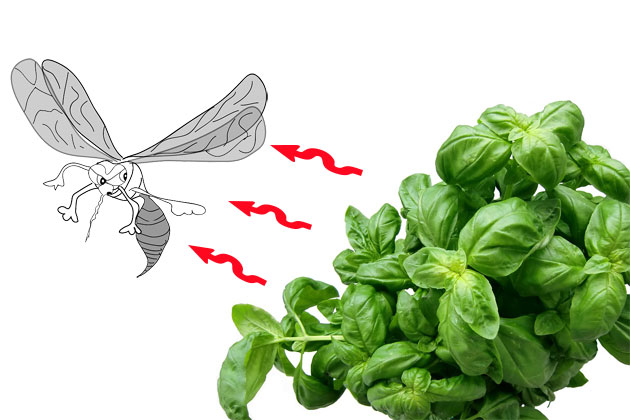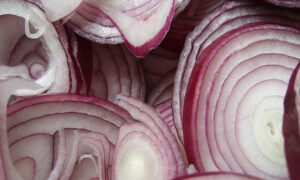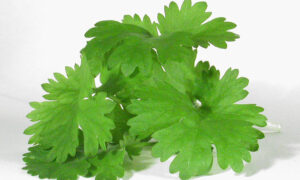Summer. The very word conjures up images of backyard barbecues, basking in the warm sun, and just enjoying the great outdoors. Unfortunately, summer also conjures up a very real annoyance in the form of the mosquito. Luckily there are quite a few plants, or rather, herbs – that naturally repel mosquitoes, look attractive in the garden, and in some cases, both taste good AND are good for you.

Marigolds
Marigolds are so common that both plants and seeds are available in garden centers pretty much everywhere. Place pots on either side of your door, outside windows, along the deck, etc., to discourage mosquitoes from entering your home or lurking around when you venture out onto the patio or go to your mailbox. If you’re a gardener, scattering marigolds around the beds will not only deter mosquitoes, but discourage a host of other pests as well, like aphids, squash bugs, and the tomato horn worm. As an added bonus, marigold flowers add an interesting flavor to salads.
Marigolds are very easy to grow. If you’re growing them in pots, make sure they’re in good potting soil, that each pot has proper drainage, and that the pot is not too small to permit proper root growth. If you’re starting them from seed, do so about six weeks before the last frost date in your region. Whether your marigolds are potted or in the ground, keep them free of weeds, and remove dead blooms to keep the plants healthy and productive. Marigolds are annuals that prefer warm weather, and should be grown in full sun, unless you’re in a really warm climate. They are fairly drought tolerant.
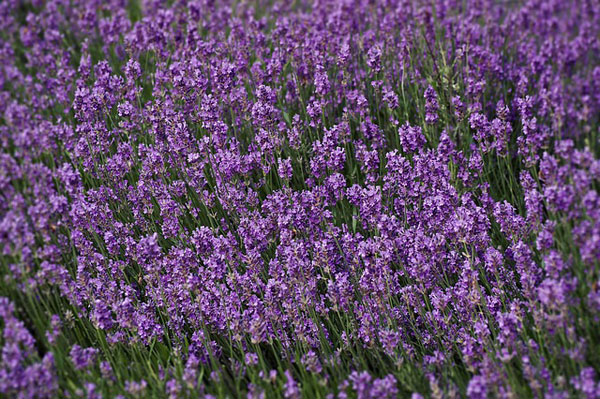
Lavender
While most humans like the soothing scent of lavender, mosquitoes can’t stand it. Lavender also has many uses – culinary, medicinal, and cosmetic. The easiest way to grow lavender is to acquire plants that have already been started in your local garden center. Lavender matures into a woody perennial shrub, so it’s important to keep that in mind when choosing where to plant it. It needs a reasonable amount of sun, and must have good drainage. It prefers alkaline soil with moderate fertility; too much nitrogen will make it susceptible to disease and winter-kill. Winter weather will cause quite a bit of die-back, which should be pruned away when new shoots appear in the spring. Removing dead blooms will also keep the plant healthy and its shape tidy. Lavender doesn’t like to get soggy, so water only when the weather is dry.
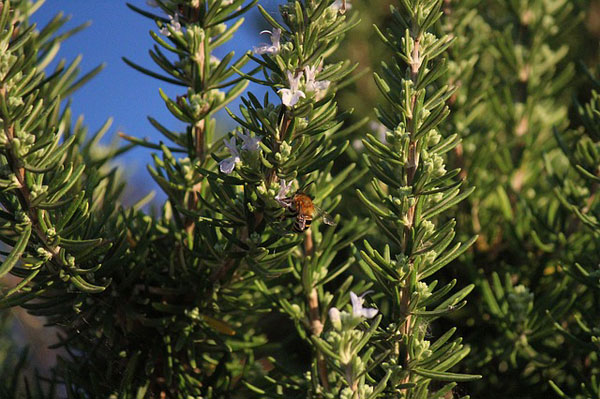
Rosemary
Rosemary is another perennial shrub that mosquitoes hate but that most humans love for its myriad uses in the kitchen, the medicine cabinet, and the cosmetics drawer. Rosemary can become quite the hedge in zones 8 through 10, but will die in colder climates unless it is brought indoors as a potted plant. It should be grown in full sun when outdoors, and placed in a reasonably light place when overwintering indoors. No matter where it’s planted, excellent drainage is essential. Although it isn’t terribly picky about its soil, rosemary prefers alkaline soil.

Basil
Basil is an annual herb that is indispensable in much Italian cooking, and extremely useful in keeping both mosquitoes and flies away. It prefers full sun and rich, loose, well-drained soil. Basil can be direct seeded outdoors well after the last frost, when the soil is warm, or started indoors six weeks before the last frost date. Pinching its flower buds will keep the plant bushy. Basil can also be grown indoors, as long as it’s given plenty of warmth and light.

Lemon Balm
Lemon Balm has a lovely lemon scent and taste that many humans enjoy but that mosquitoes avoid. It can be grown as a perennial in zones 8 through 10 and an annual in colder climates. Lemon Balm is a member of the mint family, which makes it a bit of a garden thug, so unless you want a meadow of lemon balm, it’s best to confine it to a container. Its soft leaves can be crushed and rubbed directly onto the skin as a natural mosquito repellant, and steeped in hot water to make a soothing tea.

